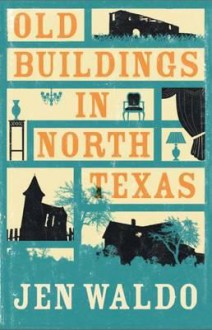
If ever there was a book that deserved having the term "novel" applied to it, "Old Buildings In North Texas" is it. I've never read anything quite like it.
I was hooked from the start. How could I not be with an opening like this:
"The situation: before they'd let me out of rehab, someone had to agree to act as my legal custodian. There it is, the snappy truth about why, at the age of thirty-two, I live with my mother. She now has control over every aspect of my life from my finances to my laundry. One little cocaine-induced heart attack and it's back to my childhood to start over."
This is not a Hallmark, "the Twelve Steps saved my life - praise the Lord" view of overcoming addiction. This is not a teaching aid with clear moral messages. It's the story of a woman in love with cocaine but having to deny her lover if she wants to have a life.
This is a story of recovery, rather than redemption. As our heroine (no pun intended) puts it: "I'm working to get better not to be better". Of course, she isn't always working very hard. She disdains her court-mandated therapist, is irritated by her parole officer and infuriated to be back under her (perfectly reasonable and deeply supportive) mother's supervision. So she finds a way to freedom, a personal path to her new life. Does it matter if it's built on lies and deception, trespass and theft and placing her heavily pregnant baby sister at risk? Actually, no, it does not. Suck it up.
Our heroine takes up "urban exploration" as a hobby. This initially involves finding a way into and exploring old abandoned buildings in North Texas but leads on to systematic, profitable looting.
I liked the voice of the main character, especially as performed by Sally Vahle in the audiobook version. She wasn't always nice but she was always authentic. Her mixture of anger, denial, simple curiosity, complicated obsessions and determination to escape is beautifully described. She presents her worldview with humour and enthusiasm without allowing herself to sugar-coat the issues - well not much anyway.
Old abandoned buildings in Texas are almost characters in their own right in this book. Jen Waldo made them seem so real to me that I had to check whether the type of building she talks about actually exist. They do. You can go here to take a look at some. I've put my favourite pictures, ones that remind me of places visited in the book, below:

Jen Waldo has a unique voice, I'll be reading more of her work to find out what else she has to say.

 Log in with Facebook
Log in with Facebook 








